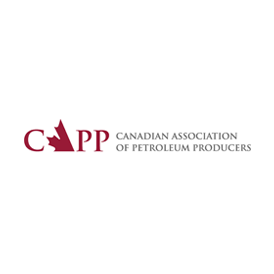Efficient climate policies that encourage innovation can grow Canada’s oil and natural gas sector, reduce emissions and create a healthy economy
Inefficient and duplicative climate policies are among the factors discouraging investment in Canada’s natural gas and oil industry — prompting companies to move operations to countries with little or no emissions-reduction programs thus increasing future global emissions, according to Competitive Climate Policy: Supporting Investment and Innovation, the third in a series of economic reports released by the Canadian Association of Petroleum Producers (CAPP).
This loss of investment curbs industry development of innovation and technology that is key to breaking the link between energy growth and emissions growth over time. Policies that reduce greenhouse gas emissions and encourage innovation in Canada’s natural gas and oil sector will do a better job of helping Canada and the world meet its climate change mitigation goals.
The loss of investment to other oil and natural gas producing regions deprives Canadians of the social and economic benefits that come from a thriving natural gas and oil industry in Canada.
The report outlines five key areas to bolster Canada’s capital and carbon competitiveness:
- Protection mechanisms for the emissions-intense, trade-exposed (EITE) upstream oil and natural gas sector to avoid carbon leakage, foster innovation, and encourage technological advances to reduce emissions and allow for the continued growth of the sector;
- A limited scope for the duplicative and costly Clean Fuel Standard to exclude the upstream natural gas and oil sector
- Enable efficient domestic and international offsets to help Canada meet its domestic emissions-reduction goals in a cost-effective manner;
- Utilize carbon-related revenue from EITE industries to facilitate and accelerate innovation funding; and,
- Protection of the competitiveness of internationally trade-exposed industries through immediate deductibility for natural gas and oil investment.
Competitive Climate Policy: Supporting Investment and Innovation can be downloaded at www.capp.ca/economicseriesCanadian Association of Petroleum Producer quotes: Tim McMillan, president and CEO
- “Competitiveness continues to be one of our biggest challenges. Investment in Canada’s energy industry – and jobs for Canadians – will continue to leave for other jurisdictions unless there are changes to regulatory policies that enable growth.”
- “We operate in one of the world’s most stringent regulatory environments. It’s important we have a robust regulatory framework that meets environmental goals, but we must pay attention to added costs, delays and inefficiencies so we do not risk falling further behind.”
- “Canada has already lost $56 billion in investment over the past three years. This investment is critical to fund innovation and technology to meet Canada’s climate mitigation goals.”
- “Industry has taken early action and continues to improve its environmental performance, while growing the economy.”
- “Canada’s oil and natural gas industry are inventing and using leading edge technologies to minimize environmental impacts.”
Petroleum Technology Alliance Canada (PTAC) quotes: Soheil Asgarpour, president
- “We are going through a major transformation in our industry, developing technologies to reduce cost and our environmental footprint with the goal of developing resources at a level that is competitive on a world scale.”
Supporting information
- If given the chance, citizens would prefer to buy oil and natural gas from Canada more than from any other country in the world. According to Ipsos’ first-ever Global Energy Pulse, Canada ranked No. 1 among 11 producing nations as the global energy supplier of choice.
- Average energy demand is expected to increase about 30 per cent by 2040 from today’s levels. According to the International Energy Agency, this is the equivalent to adding another China or India to current consumption.
- Of the almost 10 billion tonnes of carbon dioxide emitted globally from energy sources in 2015, almost half came from coal.
The Canadian Association of Petroleum Producers (CAPP) represents companies, large and small, that explore for, develop and produce natural gas and crude oil throughout Canada. CAPP’s member companies produce about 80 per cent of Canada’s natural gas and crude oil. CAPP’s associate members provide a wide range of services that support the upstream crude oil and natural gas industry. Together CAPP’s members and associate members are an important part of a national industry with revenues from crude oil and natural gas production of about $110 billion a year. CAPP’s mission, on behalf of the Canadian upstream crude oil and natural gas industry, is to advocate for and enable economic competitiveness and safe, environmentally and socially responsible performance.




